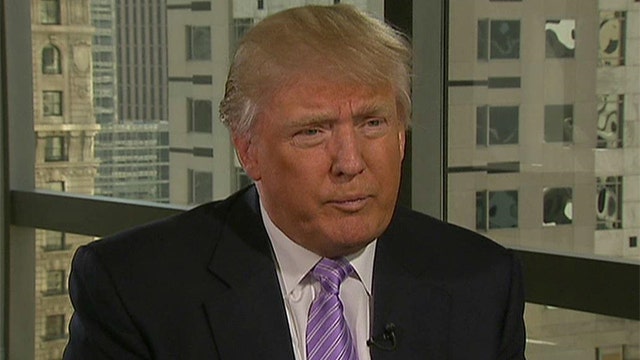Hillary Clinton and Donald Trump carry more baggage than a paroled safecracker seeking employment at a bank. Those negatives may consume the media, but voters should consider that Trump is the better choice for the economy.
Apart from getting tough with China on trade, Trump wants to simplify personal and corporate taxes and otherwise ease regulatory burdens—essentially make dealing with the government easier for ordinary folks filing their taxes and buying health insurance and businesses looking to expand and add jobs.
Clinton’s economic message is much different and largely premised on the ideas that businesses invest foolishly and discrimination by corporations, universities and other institutions are disadvantaging women and minorities and handicapping growth. According to her, tightly regulating behavior—for example, through the tax code and generalizing to the national level California’s Fair Pay Act—will miraculously add trillions to our GDP and solve most of the inequality issues plaguing America.
The challenges we face are more radical and paradoxical than Clinton supposes and require a lighter touch.
Capital and energy—once scarce and expensive—are now abundant in American and many workers’ jobs are becoming obsolete.
The digital economy is based more on intellectual property—computer apps and artificial intelligence—and less on hard assets—industrial buildings and equipment. This greatly reduces the amount of financial capital businesses need to make and create products.
For example, Google was launched with only $25 million in 1999 and grew into a $23 billion enterprise at its initial public offering five years later. It took billions and decades for Henry Ford to create a company of similar value and global scope.
Digital growth is powered by electricity, not petroleum. Even in the old economy, the electric car will displace gasoline powered vehicles over the next several decades, and abundant natural gas and cheaper solar and wind power will make that power. Oil prices will stay down.
Over the next three decades, robots that can think and handle materials with human-like agility have the potential to partially replace workers in 90 percent of contemporary occupations—including to my horror many college professors.
The new, good paying jobs will be mostly in more creative pursuits—for example, in robotics, industrial design, finance, the arts, and various fields of basic scientific and social research. Of course, we may still remain reluctant to cede to machines some ordinary tasks such as caring for young children.
The political impulse to disruptive technologies is to legislate against them. Consider that taxi and limousine services recruit municipal governments to block Uber, and California regulators are drafting rules that would slow the deployment of driverless vehicles.
Yet, the future of the automobile industry is at stake and if Americans don’t pioneer these technologies entrepreneurs elsewhere will do so to our great peril.
Smart people, alone or in small groups, can accomplish wondrous things. Two geeks working out of a garage and with less than $25,000 in financing designed and marketed the Apple I computer. That launched an industry that put the internet and the resources of the world’s largest libraries on virtually every desk in the industrialized world. The social media revolution has similar origins.
Businesses are circumventing large investment banks to engineer mergers in favor of smaller practitioners and lawyers. After all, small businesses now have analytical power on their laptops that rivals the army of expensive analysts housed by Wall Street giants.
Regulating corporate payroll and hiring policies and imposing restrictions on free speech and endless instruction in political correctness at our universities will not adequately prepare or empower our young people and businesses for a world that places a premium on agility, adaptability and entrepreneurship as opposed to conformity, compliance and the huge overhead of multinational corporations.
At her core, Clinton is devoted to economic micro-management by government regulation and under President Obama that has yielded a terribly mediocre record—slow growth, poorer job opportunities for virtually every demographic group and dysfunctions in the health care and banking systems.
Warts and all, Trump is an entrepreneur and all about taking things the other way.
There you have it—choose between a more certain but tired past, or a riskier but bolder future.
Remember, only nations that wager can win the prize!









































